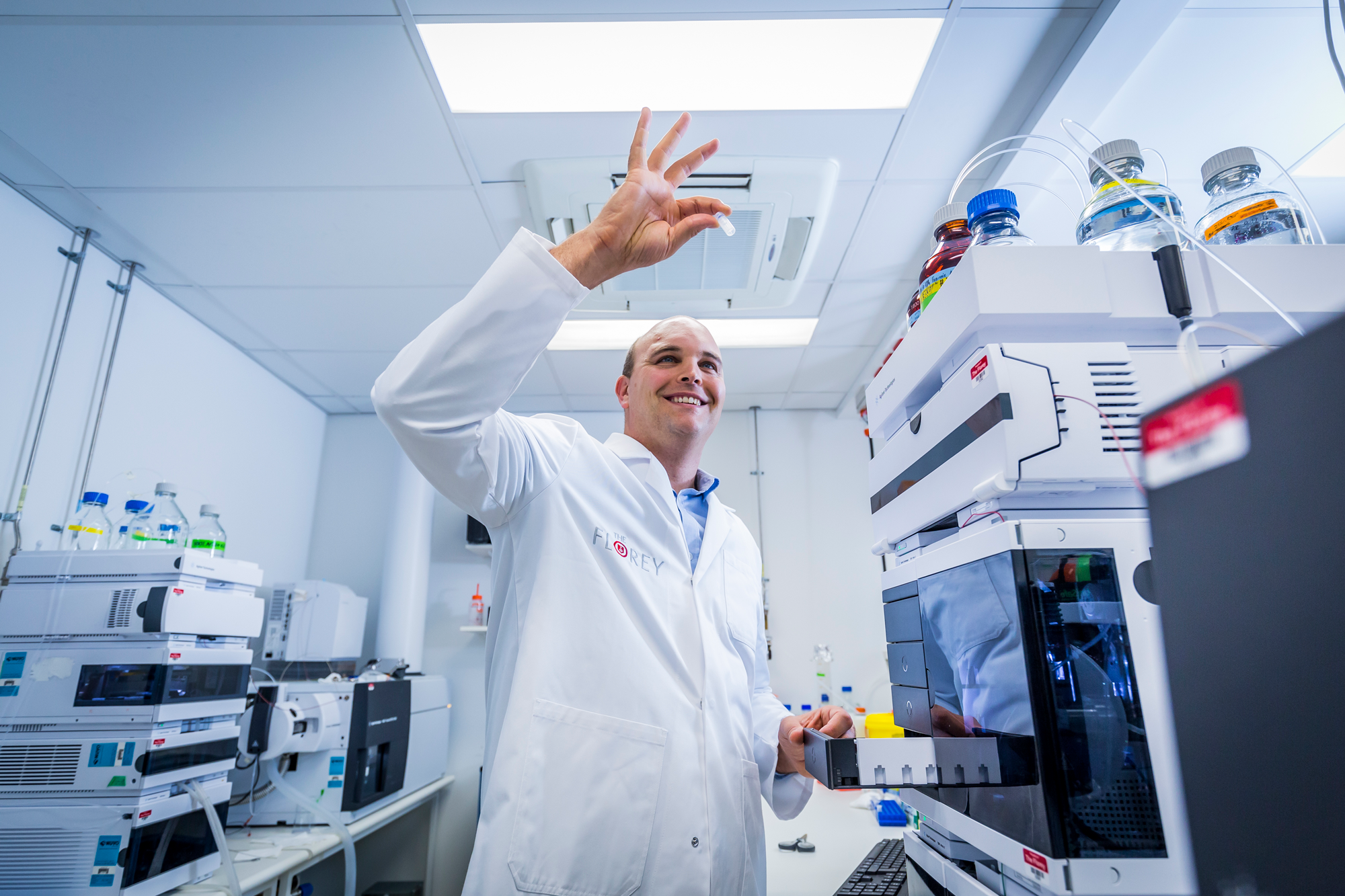Associate Professor Jess Nithianantharajah wants to uncover how the brain remodels the balance of excitatory ‘go’ and inhibitory ‘stop’ connections.
This disrupted balance likely underlies the challenging behaviours seen in children with autism spectrum disorder.
Jess plans to combine an international team with innovative behavioural and imaging methods to establish a platform for imaging individual brain connections across the whole brain. This will bridge current methods in worldwide initiatives mapping brain connectivity at different scales in animals to humans.

Dr Mathias Dutschmann studies the fundamental processes of breathing and swallowing, and aims to locate the brain region responsible for swallowing disorders, discover mechanisms underlying their cause, and test treatments that prevent them and improve the quality of life for dementia patients.
More than 50% of dementia patients suffer debilitating swallowing complications. Mathias’ group has discovered similar complications in mouse model of dementia, including: deterioration and failure to induce swallowing; and absence of epiglottal closure that increases the risk of aspiration.

Also studying fundamental dementia mechanisms, Associate Professor Blaine Roberts aims to understand the relationship of blood based biomarkers to the pathological changes occurring in the brain.
Dementia is a major cause of morbidity in Australians over the age of 65. Blaine’s group uses advanced measurement technology and samples from the Australian Imaging and Biomarker Lifestyle study of Ageing (AIBL).
The development of a blood test for Alzheimer’s disease would radically change our ability to design, test and administer treatments for the disease.

The full list of successful project grant recipients is:
A Randomised Controlled Trial of Advanced Functional MRI for Targeted Surgery in Focal Epilepsy
Utilising Biomaterials to Improve the Differentiation & Integration of Human Stem Cell-Derived Neural Grafts in Parkinson’s Disease
- Dr Matthew Pase
Effects of Poor Sleep on Alzheimer’s Disease Pathogenesis: Extending the Glymphatic Flow Hypothesis
What Causes Attention Deficits in Autism Spectrum Disorder?
Proline-rich host defense peptide analogues as new antibiotics against MDR bacteria
How stress regulates alcohol-seeking
Alcohol and cognitive decline
Novel chemical methods to produce next generation insulin analogues
Mapping learning-dependent remodelling of synapse balance across the brain
- Dr Mathias Dutschmann
Preventing swallowing disorders and risk of aspiration in dementia
- Associate Professor Blaine Roberts
Investigating the relationship of Abeta complexes in blood, cerebral spinal fluid and brain for the early detection of Alzheimer’s disease
Florey Director, Professor Steven Petrou, said, “I am delighted to congratulate the recipients of these vital research funds, as well the previously announced research and career fellowship receipients. It’s very encouraging for the future of the Florey to see early- and mid-career researchers being successful.
“In more than one case these projects began life off the back of philanthropic donations, showing the power of our medical researchers to leverage private sector funds into larger government grants that allow us to make sugnificant and substantial progress into the diseases that will impact us the most as we continue into the 21st century. “
